The ocean was a laboratory of excellence in “Camões, o Mar, a Tecnologia e a Ciência Portuguesas”. On April 16, the Museu Nacional Soares dos Reis hosted a colloquium focused on our sea, under the aura of technological progress of the past, with eyes set on a disruptive and sustainable horizon based on the Blue Economy.
The event, organised by INESC TEC through INESCTEC.OCEAN, was not only part of the Institute’s 40th anniversary celebrations, but was also inspired by the 500th anniversary of the birth of Luís Vaz de Camões. From this historical date, the colloquium sought to understand the Portuguese technological and scientific world of the 15th and 16th centuries, highly focused on maritime exploration, and how this time can motivate new and daring ventures at sea.
From the surface of the sailed ocean – much like in the voyages described by Camões – it is time for Portugal, and the world, to dive into the study of the water column and the seabed, exploring the full potential of the ocean and associated deep-sea resources.
The colloquium also addressed the technological and innovation capabilities of the institution, especially regarding advanced marine robotics competences. Between the past and the present, the event was explored a future highly structured ocean ecosystem, in which resident underwater robotics predominate, fundamental for research and exploration of the deep sea.
“Science is our compass”, said João Peças Lopes, at the opening of the colloquium. The President of the Organizing Committee for INESC TEC’s 40th anniversary celebrations pointed out that “Adamastor no longer haunts our navigators”: now, “the seas we navigate are not saltwater, but rather seas of data, knowledge and innovation”.
“Modern vessels serve as laboratories, research centres, start-ups, universities, and hubs of technological innovation. And our navigators are scientists, engineers, entrepreneurs, researchers, people who dare to dream, to create, to transform,” mentioned Peças Lopes.
João Claro’s intervention focused on the “double symbolic meaning” of the event: “On the one hand, it is associated with the celebrations of the 5th centenary of the birth of Luís Vaz de Camões. On the other hand, this colloquium is part of the celebrations of INESC TEC’s 40th anniversary.”
According to the Chairman of the Board of Directors, the event allowed not only “to revisit the scientific and technological knowledge of the time”, but also “to recall the qualities that remain vital to the future of science and technology and society, e.g., restlessness, vision and boldness.”
“At the intersection of both celebrations, this event constitutes an encounter between memory and endeavours, past and future. The ocean may well have been the most important driving force behind Portugal’s scientific and technological development,” he concluded.
Considering the “fortunate coincidence” of these celebrations, Lídia Bulcão reinforced the “reflection on the past and the future, between the epic and the new frontiers of knowledge and technology in service of the sea”. “Remembering Camões is also recognising the oceanic matrix of our collective history”, she clarified.
According to the Secretary of State for Maritime Affairs, the “ocean of our time continues to be a space of mysteries, risks and opportunities – just like in Camões’ era”. “I dare to say that Portugal remains at the forefront of several emerging areas of the Blue Economy: offshore renewable energies, blue biotechnology, marine robotics – allowing us to better understand and preserve the seabed,” said the Government representative.
Considering the promotion of ocean investment, Ana Paiva emphasised one of the top “future projects of INESC TEC: INESCTEC.OCEAN.” In her speech, the Secretary of State for Science stressed the importance of “all the knowledge generated over the past 40 years to keep exploring unknown oceans”.
Portuguese as ocean’s language
Throughout the day, the presentations and contributions from researchers fulfilled the prophecy set forth at the opening of the colloquium, stretching the event’s hours into centuries of history and scientific and technological progress.
Henrique Leitão explored the vast amount of knowledge and total scientific disruption of Portugal’s maritime endeavours at the time. According to the principal investigator at the Centro Interuniversitário de História das Ciências e da Tecnologia (CIUHCT) da Universidade de Lisboa, the beginning of Portuguese maritime explorations was “absolutely surprising”.
“How is it that, in just 40 years, what was once the exclusive experience of Europeans – sailing the Mediterranean, safely along the coasts – was suddenly taken up by sailors from a poor, underdeveloped, and peripheral country, who began embarking on planetary journeys?” he wondered.
From the 16th century we advanced to 2025, with Eduardo Silva addressing the challenges of scientific and technological infrastructures, “that reside on the seafloor, such as robotics” or submarine platforms. In other words, the “development of infrastructures for Research & Development of excellence”.
In this sense, INESCTEC.OCEAN scientific coordinator and INESC TEC researcher stated that “just as 500 years ago, when public policies created a set of institutions, infrastructures and rules that helped scientific development”, this model can be replicated or even reinforced today.
The goal is to embody the Portuguese scientific and technological potential in this area, culminating in a scenario in which “Portuguese becomes the language of the ocean engineering scientific community”. “And may the international community wish to learn Portuguese to communicate and collaborate with our country”, he mentioned.
Between sailing the Portuguese sea and the future envisioned by INESC TEC, the event continued to reflect on the wealth of national scientific and technological ocean knowledge, as well as the promotion of a proactive and disruptive approach to ongoing research, development, and innovation (R&D+I) activities.
Joaquim Alves Gaspar, expert in Navigation and Mathematical Cartography at CIUHCT-UL, presented details of the evolution of maritime cartography, especially that associated with the circumnavigation of Fernão de Magalhães. Returning to the present, José Miguel Almeida, a researcher at INESC TEC, bridged the gap between the institution’s current marine robotics capabilities and the ocean infrastructure needs of the future.
After a lunch party, it was Filipe Castro’s turn to address the audience. The researcher at the História, Territórios e Comunidades (HTC) hub of Centro de Ecologia Funcional da Universidade Nova de Lisboa e da Universidade de Coimbra – with his vast experience in underwater archaeology – addressed the past and current research in terms of equipment and technologies associated with Portuguese shipbuilding of the 16th century.
Miguel Miranda argued about the need for initiative and resilience in catalysing the potential of the ocean, under a planet threatened by resource scarcity. Drawing on Portuguese history, the Executive Director of the AIR Centre highlighted the responsibility to define the future that we seek for our oceans.
Before the roundtable, Henrique Leitão gave another presentation, this time on the scientific and academic achievements of the mathematician and chief cosmographer Pedro Nunes – whom, according to the researcher, may have been the greatest scientist in Portugal’s history.
“Neptune before Mars”
Moderated by Pedro Urbano Lima, President of the Instituto de Sistemas e Robótica do Instituto Superior Técnico (ISR-IST), the roundtable brought together a diverse selection of guests for a discussion on ocean-related challenges as an engine of research, development and a sustainable future.
Luísa Bastos, a senior researcher at the Centro Interdisciplinar de Investigação Marinha e Ambiental (CIIMAR), pointed out that we managed to overcome one of the top challenges: the ability to locate at sea. In the past, difficulties persisted in “determining the longitude, keeping an accurate record of the time or using reliable nautical charts”. Currently, “anyone with a GPS” will be able to carry out that task.
Ana Paula Mucha pointed out that the challenge is to focus on conscious science based on the foundations of sustainability, i.e., “knowing to preserve the ocean”. “The main goal is using technology to preserve the ocean”, she mentioned.
The researcher and member of the CIIMAR board highlighted the need to “develop tools that allow the collection of physical, chemical and biological data” that not only contribute to “the knowledge and protection of marine ecosystems”, but are also useful for bioprospecting: “we must identify these ecosystems’ resources and understand which can be useful for humanity, for the development of medication, methods to tackle pollution and address climate change”.
From a public policy point of view, João Filipe Queiró, professor of Mathematics at the Faculdade de Ciências e Tecnologia da Universidade de Coimbra, mentioned the need to foster a more robust economy and attract private investment. Looking back, the former Secretary of State for Higher Education stated that, “in Portugal, the shipping effort was promoted by what we would today call the State”, while in “England and the Netherlands, there were major private companies, to whom the Crown handed over the monopoly of ocean exploration.”
According to him, the comparison is “interesting, since science and technology in Portugal, even today, are mainly promoted by the State”, due to what he considered to be a “weak” economic ecosystem. “Innovation, especially that motivated by commercial interest, must be driven by the real economy. If the economy is weak, that all efforts will fail. And this introduces a significant doubt concerning the future.”
The need for more investment was the topic addressed by José Manuel Mendonça. The coordinator of INESCTEC.OCEAN and former Chairman of INESC TEC started by mentioning that the Blue Economy “only covers 3% to 4% of the global economy, but it may quadruple over the next 20 years”. “The European Oceans Pact takes on the challenge: Neptune before Mars”.
However, José Manuel Mendonça recalled a “huge challenge”: exploring the “deep sea is more complicated, risky and expensive than exploring space”. Still, he said that only the firm commitment “to science, knowledge, deep research” allows us to take advantage of the vast potential of the oceans.
INESC TEC and the sea: the blue future of INESCTEC.OCEAN
After a musical piano interlude, presented by pianist and composer Carlos Azevedo, musical co-director of the Matosinhos Jazz Orchestra, Aníbal Matos closed “Camões, o Mar, a Tecnologia e a Ciência Portuguesas”.
The member of the Board of Directors of INESC TEC raised several concerns and motivations for future research, from the elementary collection of data to the principles of Open Science: “We currently have and collect a lot of data, but are we making it available to the community, in a systematic and easy way? When we develop robotics, what are our motivations? Why do we do it? Is it to observe the ocean? Is it to collect data or resources?”
Aníbal Matos emphasised that the major aspect is “to know how to benefit from the opportunities we have to do science and develop technology with impact and not limit ourselves to letting others surpass us with their scientific and technological developments”. “We must be able to reduce development time and train people for multidisciplinary teams,” he added.
The INESC TEC researcher also said that “the role of INESCTEC.OCEAN in these new developments is quite clear”. The researcher emphasised that it is not only “a project focused on empowering people, but also on developing infrastructures that allow us to accelerate the testing of equipment – and to test them not only in tanks and ocean basins, but also in the ocean waters”.
The INESC TEC researchers mentioned in the article are affiliated with INESC TEC, UP-FEUP and IPP-ISEP.

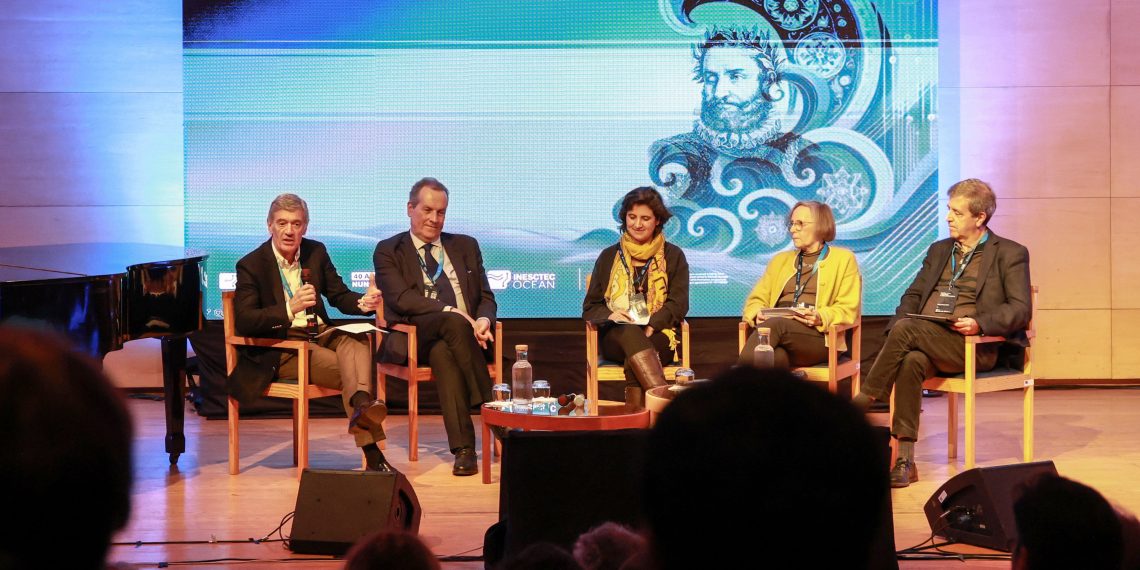
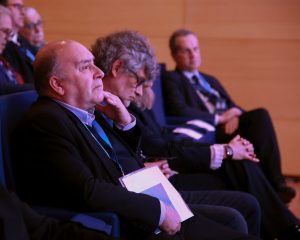
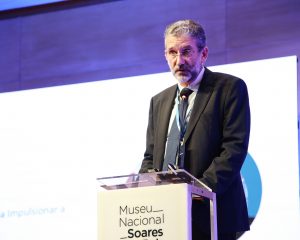
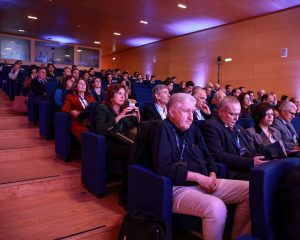
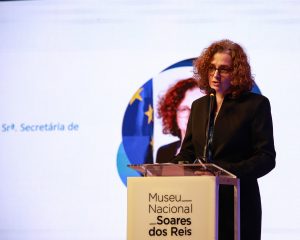
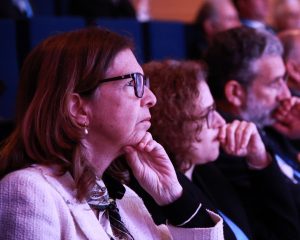
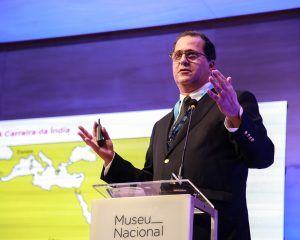
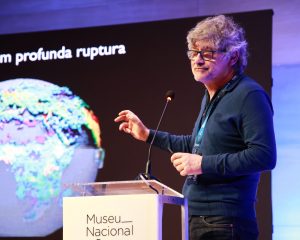
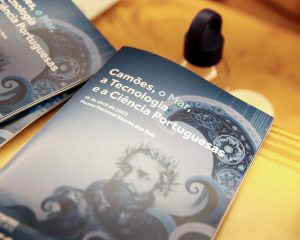
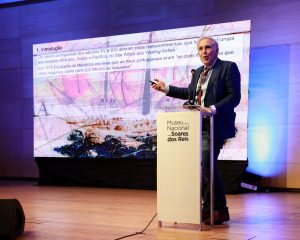
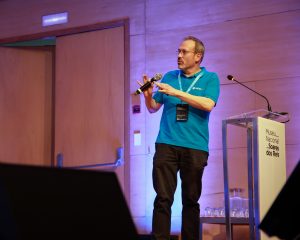
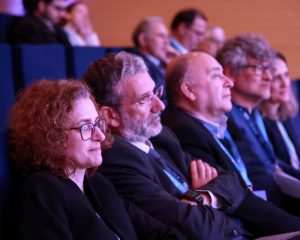
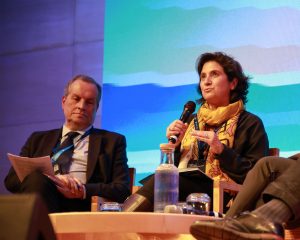
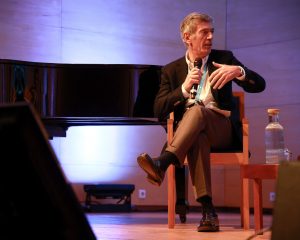
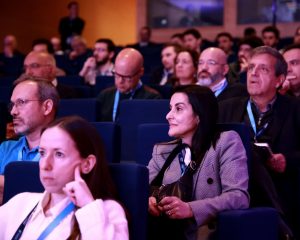
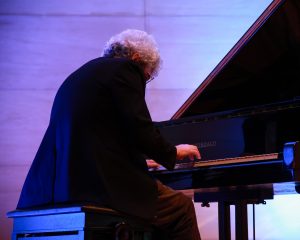
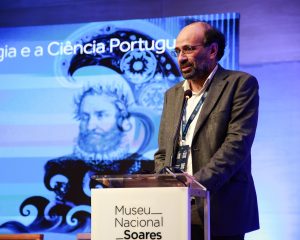
 News, current topics, curiosities and so much more about INESC TEC and its community!
News, current topics, curiosities and so much more about INESC TEC and its community!